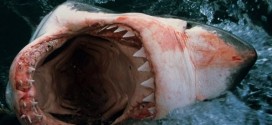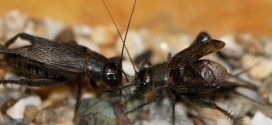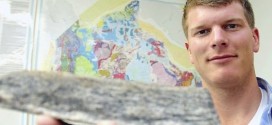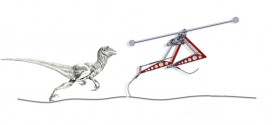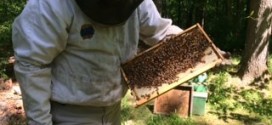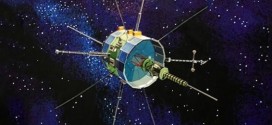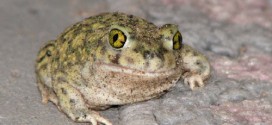A single-letter change in the genetic code is enough to generate blond hair in humans, according to a new analysis by Howard Hughes Medical Institute scientists which has pinpointed that change, common in the genomes of Northern Europeans. A handful of genes likely determine hair color in humans and the precise molecular basis of the trait remains poorly understood, and …
Read More »Science
UK Researchers Create Working Tractor Beam
Tractor beams, like those made popular in science-fiction movies such as Star Wars and Star Trek, are now a reality, writes Nature World News. While tractor beams are usually the work of fiction, seen in sci-fi movies where objects can be pulled towards an energy source, researchers from the University of Dundee have found a way to make this a …
Read More »Amy Tatsch : Shark attack victim describes encounter
A woman who had a chunk of her calf bitten off by a shark off the coast of Florida earlier this month shared her experience of the attack Friday. Amy Tatsch — a mother of six — was attacked on May 15 while on a family outing to Melbourne Beach, in Florida.
Read More »Rapid Convergent Evolution in Wild Crickets, Study
If going to bed to the chirping of crickets is what you fantasize about during your vacation, then heading to the Hawaiian islands Kauai and Oahu may not be a good idea. Male crickets in these two islands have lost their ability to chirp. They have developed flatwings as a result of separate, but simultaneous, evolutionary adaptation that started as …
Read More »Ancient Rocks Provide Clues About Earth’s Earliest Crust, Report
The rocks about four-billion-year-old showed crust-forming processes that are very similar to those occurring in present-day Iceland. “This provides the first physical evidence that a setting similar to modern Iceland was present on the early earth,” said Jesse Reimink from University of Alberta in Canada, who collected and studied rock samples from the Acasta Gneiss Complex in Canada.
Read More »Velociraptor Inspires Fast Running Robot (Video)
A team of researchers at the Korea Advanced Institute of Science and Technology (KAIST) have created a new sprinting robot inspired by a velociraptor. The robot, dubbed the Raptor, runs on two legs, and is capable of running 46 kilometers per hour (kph), or 28 miles per hour (mph), on a treadmill, according to CNET. Raptor can run faster than …
Read More »Scientists Develop 3D Robots That Self-Assemble With Heat
Scientists at the Massachusetts Institute of Technology (MIT) have developed robots that can be printed and that self-assemble when heated.
Read More »Local beekeepers say numbers down, Report
A yearly survey of beekeepers, shows fewer colony losses occurred in the United States over the winter of 2013-2014 than in recent years, but beekeepers say losses remain higher than the level that they consider to be sustainable. According to survey results, total losses of managed honey bee colonies from all causes were 23.2 percent nationwide. That number is above …
Read More »ISEE-3 spacecraft : Citizen scientists aim to restart long-silent NASA probe
A team of crowdfunded scientists have successfully re-established communication with an abandoned space probe, last used nearly 30 years ago. The ISEE-3 Reboot Project has announced that it has achieved two-way communication with the ISEE-3, which was originally launched by NASA in 1978, writes Forbes.
Read More »9 Researchers Awarded Prestigious Kavli Prizes
Three $1 million prizes for scientific research will be shared among nine scientists who contributed to astrophysics, neuroscience and nanoscience. Bestowed every two years since 2008, Kavli Prizes are named for Norway-born Fred Kavli, a philanthropist who died last November, according to The Associated Press.
Read More »Toads causing concern in Madagascar, Report
Madagascar’s unique wildlife is under threat from an invasion of toxic toads, scientists have warned. In a letter to Nature, Jonathan Kolby of Oz’s James Cook University, together with 11 other researchers, warn that Madagascar is facing an “ecological disaster” if it doesn’t act to curtail the incursion.
Read More » Canada Journal – News of the World Articles and videos to bring you the biggest Canadian news stories from across the country every day
Canada Journal – News of the World Articles and videos to bring you the biggest Canadian news stories from across the country every day


